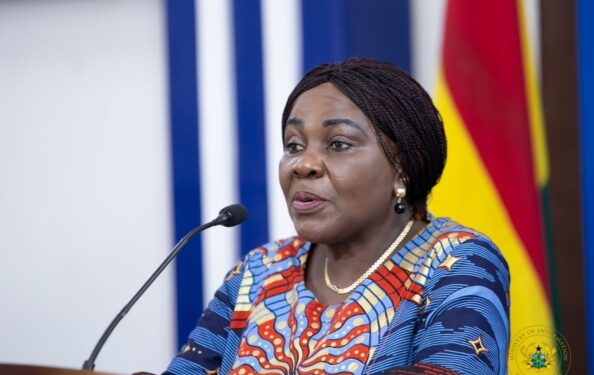The Office of the Special Prosecutor (OSP) has refuted claims that it cleared former Sanitation Minister, Cecilia Dapaah, before transferring her case to the Economic and Organized Crime Office (EOCO).
The OSP investigated Cecilia Dapaah for alleged corruption and corruption-related offences after news reports broke that domestic staff stole millions of local and foreign currencies, along with other personal effects belonging to the former minister and her husband.
Following several months of investigation, the OSP closed its case and handed it over to EOCO on the basis that the offence it is uncovering fell largely in the realm of money laundering. The Office added that it may re-open the case should it uncover further evidence to support corruption investigations.
However, EOCO sent OSP’s transferee docket to the Attorney General’s office for advice on whether it should conduct investigations or not. The AG’s Office advised EOCO to stop investigations on the grounds that the file did not have an investigative report and further documentation to ground a money laundering prosecution. The AG further said the police are also investigating the source of funding by Madam Cecilia Dapaah, so there is no need for EOCO to continue.
In a separate statement, the Attorney General’s office also accused the OSP of failing to provide EOCO with sufficient information regarding its collaboration with the Federal Bureau of Investigations (FBI) to aid further investigations.
Meanwhile, over the weekend, the Director for Strategy, Research, and Communications at the OSP, Mr. Samuel Appiah Darko, clarified that his office did not clear Cecilia Dapaah of corruption-related offences.
He explained that the OSP closed its investigation after the investigations showed the offense largely fell in the province of money laundering. It also noted that Madam Dapaah could not reasonably explain all the seized monies from her home as all answers were untrue after investigations.
Mr. Darko maintained that EOCO did not request the FBI investigation report although there were joint representatives from the two agencies working on the file transfer.
“We want to make it very clear that EOCO did not request for the FBI report. Even if they did, the FBI report has a lot of confidentiality clauses that were directed particularly to the OSP and you can’t just give it to another agency because you have transferred the case. There ought to be a lot of inter-agency collaboration and clearance. So if it had happened, we may have triggered the clearance clauses so that either we are cleared by FBI or FBI sends the report directly to EOCO.”
He said the OSP referred the case to EOCO, with all relevant documentation including caution statements of over 20 suspects in America, Accra, and Kumasi and other information including relatives of Madam Dapaah claiming the monies and some pieces of jewelry in her house were family heirloom to assist EOCO in conducting its own independent investigation into the financial transactions involved.
“The OSP should be considered as a whistleblower to EOCO. So as a whistle-blower, we gave EOCO platinum information. Ordinarily, you will not even find other agencies giving such information to EOCO,” Mr. Darko noted in the interview.
The OSP’s Director for Strategy, Research, and Communications gave further reasons on why his outfit referred the case to EOCO instead of proceeding with the alleged money laundering probe.
“Our referral is not just in respect of a transaction in America. Also, we were not conducting money laundering investigation, we were conducting corruption investigation. We are of the opinion that, we had all it takes to send that referral to EOCO because there was no way we could have proceeded and then investigated and written a report on money laundering and send it to EOCO for onward transfer to the Attorney General. We only referred a matter to EOCO as whistle-blowers for EOCO to investigate…We cannot instruct EOCO on what they should do,” he added


